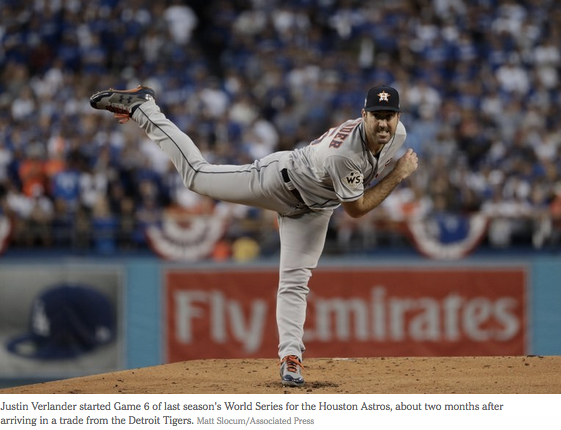WASHINGTON — As President Trump congratulated the World Series champion Houston Astros at a White House ceremony last week, he also heaped praise on himself and congressional Republicans for passing a sweeping tax cut last year. He hailed Representative Kevin Brady of Texas, the House’s chief tax writer and an Astros superfan, as “the king of those tax cuts.”
What he did not mention is that the new tax law Mr. Brady helped draft, and which Mr. Trump signed, levies a large new tax on the Astros, and similar franchises across professional sports.
The law changed a corner of the tax code that mostly applies to farmers, manufacturers and other businesses that until recently could swap certain assets like trucks and machinery tax-free. But by adding a single word to the newly written tax code — “real” — the law now allows only real estate swaps to qualify for that special treatment.
That change is meant to capture more federal revenue, in order to partly offset reductions in business and personal income tax rates. It forces manufacturers, farmers and others to pay more in capital gains taxes, if they trade an asset for something more valuable. The Joint Committee on Taxation estimates the change will raise $31 billion over the next decade.
It also means that the Astros and other sports franchises could now face capital gains taxes every time they exchange or trade their highly paid players.




